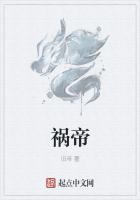TWO AND THE BARRIER.
Scarborough often rode with Gladys and Pauline, sometimes with Gladys alone.One afternoon in August he came expecting to go out with both.But Gladys was not well that day.She had examined her pale face and deeply circled eyes in her glass; she had counseled with her maid--a discreetly and soothingly frank French woman.Too late to telephone him, she had overruled her longing to see him and had decided that at what she hoped was his "critical stage" it would be wiser not to show herself to him thus even in her most becoming tea-gown, which compelled the eyes of the beholder to a fascinating game of hide and seek with her neck and arms and the lines of her figure.
"And Mrs.Dumont?" inquired Scarborough of the servant who brought Gladys' message and note.
"She's out walking, sir."
Scarborough rode away, taking the long drive through the grounds of the Eyrie, as it would save him a mile of dusty and not well-shaded highway.A few hundred yards and he was passing the sloping meadows that lay golden bronze in the sun, beyond the narrow fringe of wood skirting and shielding the drive.The grass and clover had been cut.Part of it was spread where it had fallen, part had been raked into little hillocks ready for the wagons.At the edge of one of these hillocks far down the slope he saw the tail of a pale blue skirt, a white parasol cast upon the stubble beside it.He reined in his horse, hesitated, dismounted, tied his bridle round a sapling.He strode across the field toward the hillock that had betrayed its secret to him.
"Do I interrupt?" he called when he was still far enough away not to be taking her by surprise.
There was no answer.He paused, debating whether to call again or to turn back.
But soon she was rising--the lower part of her tall narrow figure hid by the hillock, the upper part revealing to him the strong stamp of that vivid individuality of hers which separated her at once from no matter what company.She had on a big garden hat, trimmed just a little with summer flowers, a blouse of some soft white material, with even softer lace on the shoulders and in the long, loose sleeves.She gave a friendly nod and glance in his direction, and said: "Oh, no--not at all.I'm glad to have help in enjoying this."She was looking out toward the mists of the horizon hills.The heat of the day had passed; the woods, the hillocks of hay were casting long shadows on the pale-bronze fields.A breeze had sprung up and was lifting from the dried and drying grass and clover a keen, sweet, intoxicating perfume--like the odor which classic zephyrs used to shake from the flowing hair of woodland nymphs.
He stood beside her without speaking, looking intently at her.
It was the first time he had been alone with her since the afternoon at Battle Field when she confessed her marriage and he his love.
"Bandit was lame," she said when it seemed necessary to say something.
She rode a thoroughbred, Bandit, who would let no one else mount him; whenever she got a new saddle she herself had to help put it on, so alert was he for schemes to entrap him to some other's service.He obeyed her in the haughty, nervous way characteristic of thoroughbreds--obeyed because he felt that she was without fear, and because she had the firm but gentle hand that does not fret a horse yet does not let him think for an instant that he is or can be free.Then, too, he had his share of the universal, fundamental vanity we should probably find swelling the oyster did we but know how to interpret it; and he must have appreciated what an altogether harmonious spectacle it was when he swept along with his mistress upon his back as light and free as a Valkyr.
"I was sorry to miss the ride," Pauline went on after another pause--to her, riding was the keenest of the many physical delights that are for those who have vigorous and courageous bodies and sensitive nerves.Whenever it was possible she fought out her battles with herself on horseback, usually finding herself able there to drown mental distress in the surge of physical exultation.
As he still did not speak she looked at him--and could not look away.She had not seen that expression since their final hour together at Battle Field, though in these few last months she had been remembering it so exactly, had been wondering, doubting whether she could not bring it to his face again, had been forbidding herself to long to see it.And there it was, unchanged like all the inflexible purposes that made his character and his career.And back to her came, as it had come many and many a time in those years, the story he had told her of his father and mother, of his father's love for his mother--how it had enfolded her from the harshness and peril of pioneer life, had enfolded her in age no less than in youth, had gone down into and through the Valley of the Shadow with her, had not left her even at the gates of Death, but had taken him on with her into the Beyond.And Pauline trembled, an enormous joy thrilling through and through her.
"Don't!" she said uncertainly."Don't look at me like that, PLEASE!""You were crying," he said abruptly.He stood before her, obviously one who had conquered the respect of the world in fair, open battle, and has the courage that is for those only who have tested their strength and know it will not fail them.And the sight of him, the look of him, filled her not with the mere belief, but with the absolute conviction that no malign power in all the world or in the mystery round the world could come past him to her to harass or harm her.The doubts, the sense of desolation that had so agitated her a few minutes before now seemed trivial, weak, unworthy.
She lowered her eyes--she had thought he would not observe the slight traces of the tears she had carefully wiped away.She clasped her hands meekly and looked--and felt--like a guilty child.The coldness, the haughtiness were gone from her face.














